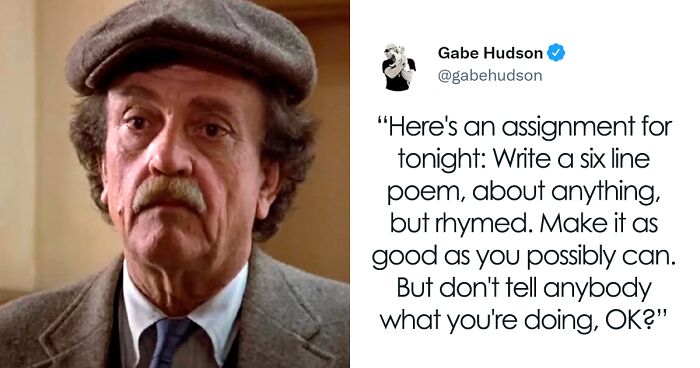
Kurt Vonnegut Sent A Letter To Students In 2006 And People Loved What He Had To Say
Hello, pandas. Welcome to another article. It’s full of words in the beginning and pictures at the end. It’s circuitous and eloquent and portentous. At the outside, pandas, you’ve got about 10 minutes here. There’s only one rule that I know of, pandas – “God damn it, you’ve got to be kind.”
Much inspired by Kurt Vonnegut’s mastery of words in God Bless You, Mr Rosewater, came the introduction of this article. We’ll look at a letter that the late writer sent to a high school, sharing his advice on how to make life a little more special, where everything is beautiful and nothing hurts.
We’ll also dive into the history of certain works, noting the impact they have on the reader and certain schools forbidding them to be read. So that’s what you’ve got to look forward to. Leave your thoughts below in the comments, as well as your favorite Kurt Vonnegut books. Upvote and follow for more uncanny articles, now let’s get into it!
More info: Twitter
Kurt Vonnegut’s letter to five students has become an inspirational piece, motivating generations to create art and enjoy life
Image credits: TM & MGM
Back in Autumn of 2006, a New York City English teacher named Ms. Lockwood asked her students to write to their favorite authors and persuade them to visit the school.
Five of those pupils chose novelist Kurt Vonnegut, the author of 14 novels, including Slaughterhouse-Five, consistently rated one of the 100 best English-language books of the 20th century.
Although he, aged 84 at the time, never made the trip to Xavier High School, Vonnegut did respond with the following letter, offering the students and their teacher some inspiring advice on how best to experience life and to grow their souls.
He was the only author to respond to the students’ letters.
The letter was shared in a Twitter thread by Gabe Hudson and it’s gained a lot of traction since
Image credits: gabehudson
Image credits: gabehudson
Image credits: gabehudson
Image credits: gabehudson
From making art to pretending to be Count Dracula, Vonnegut encouraged the students to live life for the moment
Image credits: gabehudson
Kurt, after an appreciative introduction, advised the following: “Practice any art, music, singing, dancing, acting, drawing, painting, sculpting, poetry, fiction, essays, reportage, no matter how well or badly, not to get money and fame, but to experience becoming, to find out what’s inside you, to make your soul grow.”
From making art and doing it for the rest of their lives, to making a face in mashed potatoes or pretending to be Count Dracula, Vonnegut encouraged the students to live life for the moment. To take in life for themselves, without fear of succeeding or failing; just for the pure happiness of creating, trapping memories in the amber of this moment.
Image credits: gabehudson
Image credits: gabehudson
His task for the students, although written humorously, continues to teach us the importance of enjoying the journey all these years later.
“Make it as good as you possibly can. But don’t tell anybody what you’re doing,” Kurt wrote. “Tear it up into teeny-weeny pieces, and discard them into widely separated trash receptacles. You will find that you have already been gloriously rewarded for your poem.”
Image credits: gabehudson
The full typed-out letter featured Kurt’s signature within a drawing of a self-portrait
Image credits: gabehudson
Vonnegut’s simple style of writing about complex issues captured the hearts of many readers, becoming beloved modern classics
Image credits: Greg Younger (not the actual photo)
Kurt Vonnegut’s own style of writing tends to be minimalist, utilizing short, clear sentences and avoiding wordy run-ons. Simplicity in language is something that was highly regarded by Vonnegut, though his messages or subject matter were often far from simplistic.
In an essay published by Cram, it is said that “the unique pairing of black humor, social satire, and science fiction make the stories of Kurt Vonnegut both intriguing and effective.
His way of satirizing contemporary society using themes such as war, sex, and death makes his stories bluntly honest.” However, such honesty was not accepted by some, as Slaughterhouse-Five, published in 1969, has been considered to be one of the most censored books of the last century.
However, one book published in 1969, Slaughterhouse-Five, was to have a rocky time with censorship
Image credits: tylerchill
The satirical novel features Billy Pilgrim, a naïve optometrist, who survives the firebombing of Dresden during World War II, only to be kidnapped by aliens from the planet Tralfamadore. During this traumatic period, Pilgrim becomes ‘unstuck in time’ and doomed to relive moments of his life over and over again.
This novel, due to one or more of the following reasons, has been a subject of controversy: obscenity, vulgar language, violence, un-Godliness, immoral subject matter, and an unpatriotic portrayal of war.
Image credits: kdkseven
J. Willard Marriott Library has written a comprehensive summary of events, starting with the lawsuit in 1977 by Steven Pico and other students against the school board which claimed that their First Amendment rights had been violated by the board’s removal of the books. “The board countered with a rebuttal, condemning the books as ‘anti-American, anti-Christian, anti-Semitic, and just plain filthy.’”
Many countersuits followed throughout 1979-1982. When it reached the Supreme Court, four Justices ruled that removing the books was unconstitutional, another four concluded the contrary, while one Justice maintained that the court need not decide the question on the merits.
Image credits: lorelilee18346
The final verdict was that “local school boards may not remove books from school library shelves simply because they dislike the ideas contained in those books and seek by their removal to prescribe what shall be orthodox in politics, nationalism, religion, or other matters of opinion.”
To this day, the debate still exists, however, it often ends with a compromise of limited access and parental permission.
Regardless of the debates, one thing is for certain and that is his message to enjoy life for what it is, making your soul grow and experience ‘becoming’
Image credits: Erich Ferdinand (not the actual photo)
But let’s return back to the letter in question, asking us to live in the present and create. Just create, as best as we can. In the days when we’re concerned about the future, nostalgically looking back at the past, and thinking about ‘what’s next’ in the present day, what is the moment that we stop and just acknowledge the fact that we’re alive?
People have shared their own experiences with Kurt Vonnegut, recalling quotes and times of awe
Image credits: RebeccaKuhn4
Image credits: ThunderLevin
Instead of running to the next best thing, outperforming colleagues at work, being the best we can be, how about we just create something for the heck of it, for the joy of it?
To see something being born out of nothing that might have no purpose other than to make us happy during its creation.
Image credits: costrike
Image credits: Joe_Hansbarger
The inspiring nature of his words will no doubt resonate with readers for years to come, inspiring a joy for both reading and creation
Image credits: morelli_steven
If Kurt Vonnegut’s tips and suggestions weren’t enough, Wild Simple Joy notes other means of grasping onto the present moment. Limiting work hours and putting down the phone for a little while can help you get unstuck from the rut.
Taking even 10 to 15 minutes to breathe, noticing your surroundings and the sensations in your body can make a world of difference. Most importantly – release that which you cannot control.
Image credits: Shoq
Image credits: miashadow7606
Image credits: CrazyGrazie
Keep on believing and searching for beauty, dear readers, and thus, it’s the end of the article. So it goes
Image credits: Sharon Mollerus (not the actual image)
So it goes, dear readers. Hope you enjoyed this little article and that you found inspiration within.
I’ll happily await your thoughts in the comments below, eager to see what your brilliant minds come up with. And in the words of Kurt Vonnegut himself – God bless you all!
39Kviews
Share on Facebook‘We are what we pretend to be, so we must be careful about what we pretend to be.’ From Mother Night.
I really like this one: "Hello babies. Welcome to Earth. It's hot in the summer and cold in the winter. It's round and wet and crowded. On the outside, babies, you've got a hundred years here. There's only one rule that I know of, babies-"God damn it, you've got to be kind". We have a ratty old poster of this one, and when I was pregnant it would make me all teary-eyed. Still does, in fact.
‘We are what we pretend to be, so we must be careful about what we pretend to be.’ From Mother Night.
I really like this one: "Hello babies. Welcome to Earth. It's hot in the summer and cold in the winter. It's round and wet and crowded. On the outside, babies, you've got a hundred years here. There's only one rule that I know of, babies-"God damn it, you've got to be kind". We have a ratty old poster of this one, and when I was pregnant it would make me all teary-eyed. Still does, in fact.

 Dark Mode
Dark Mode 

 No fees, cancel anytime
No fees, cancel anytime 






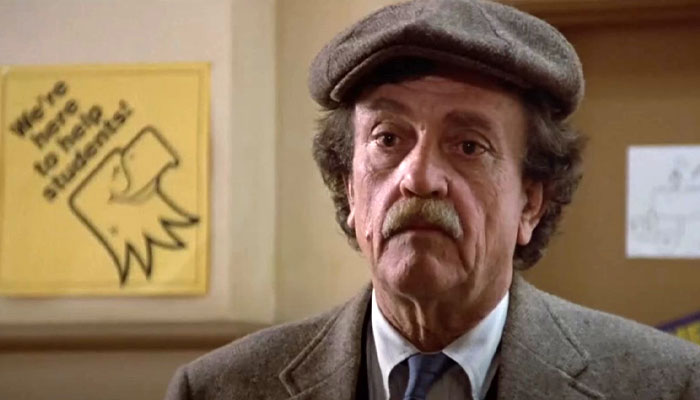
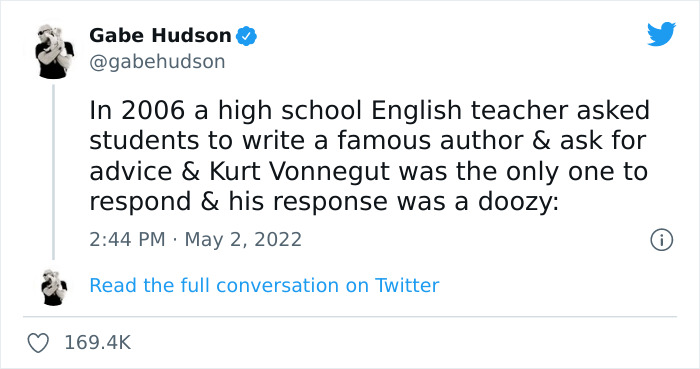
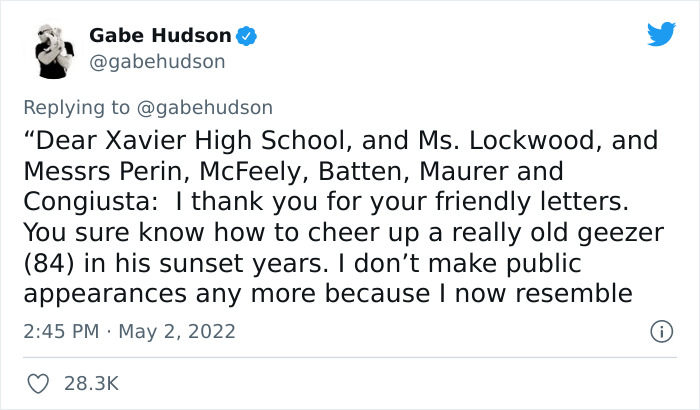
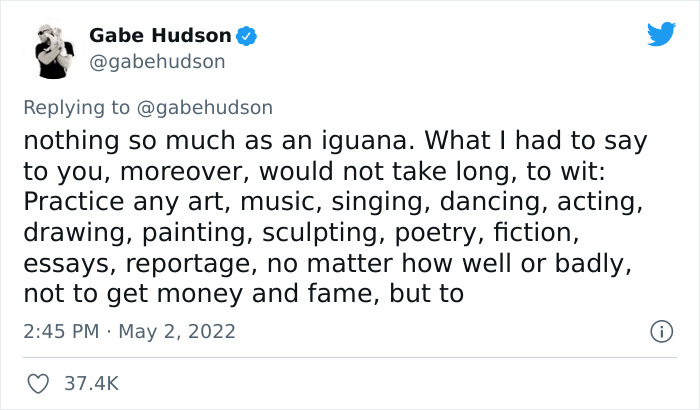
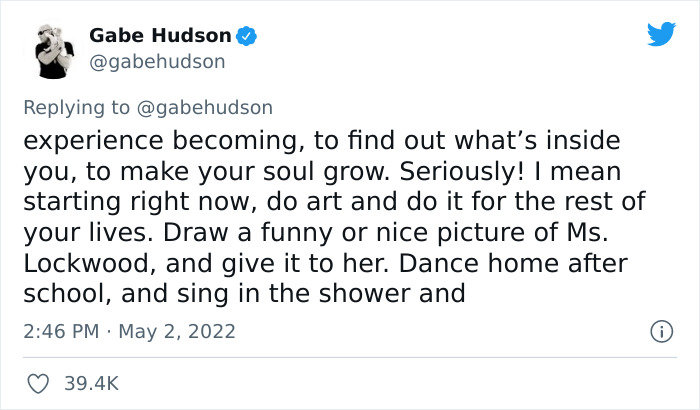
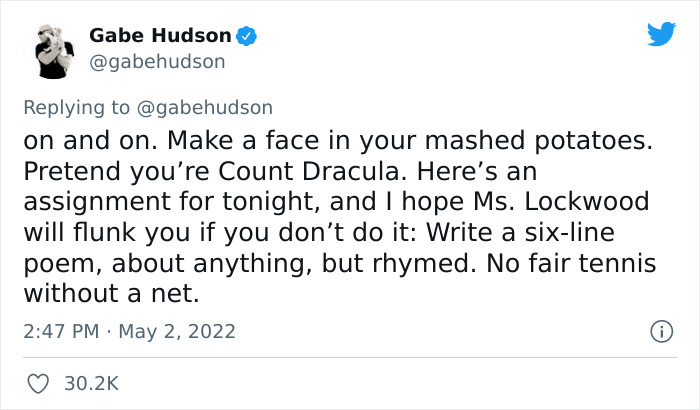
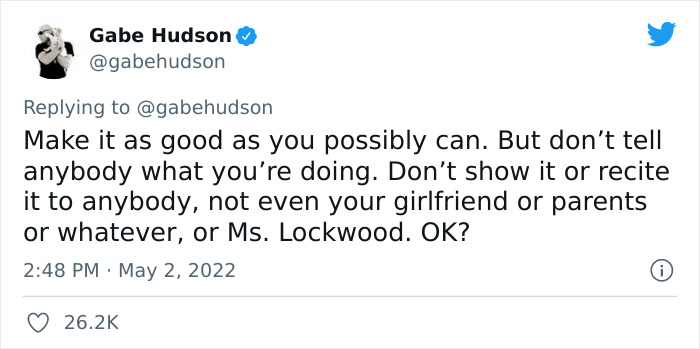
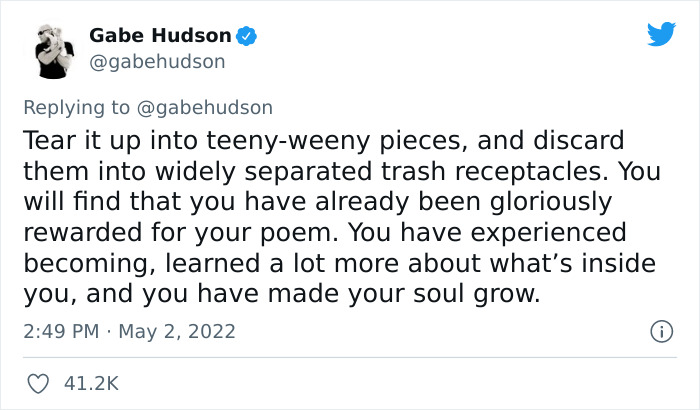
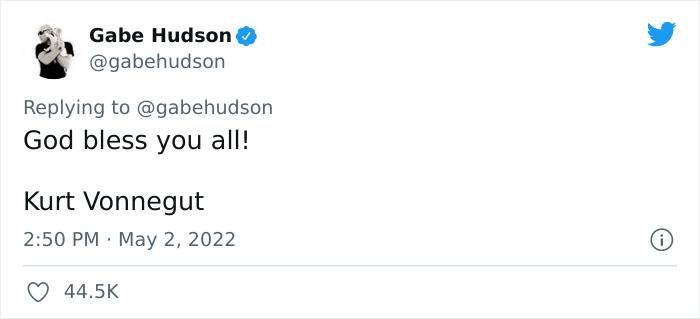
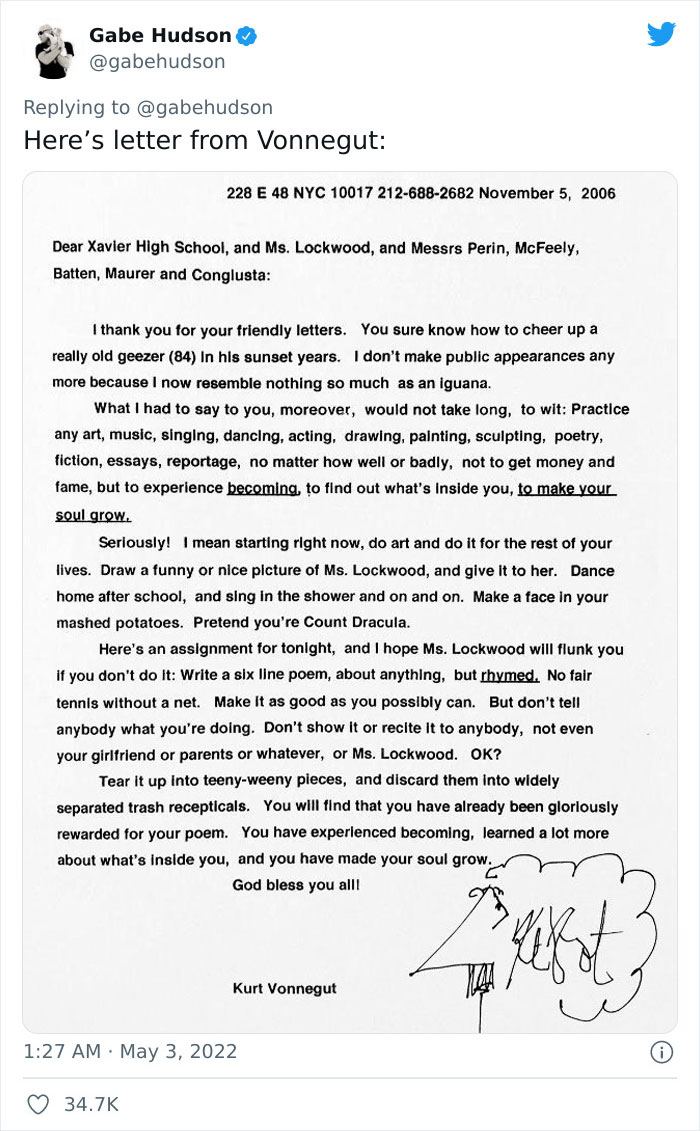
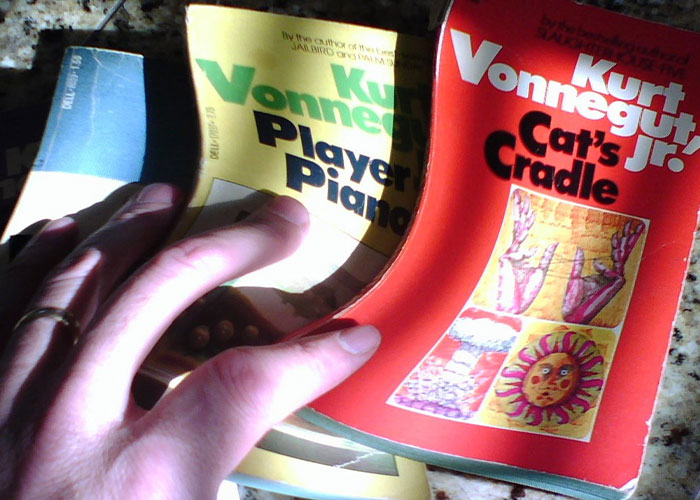
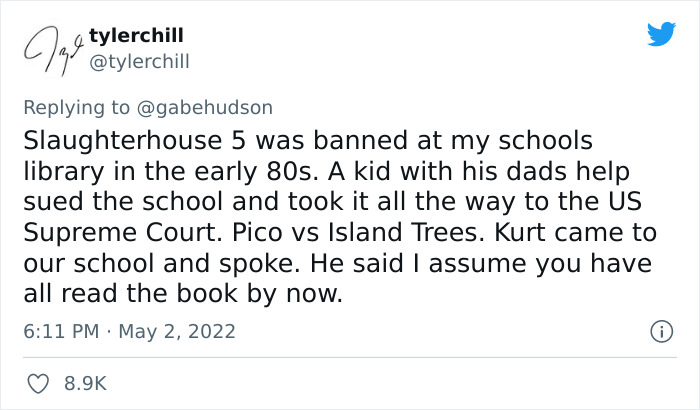
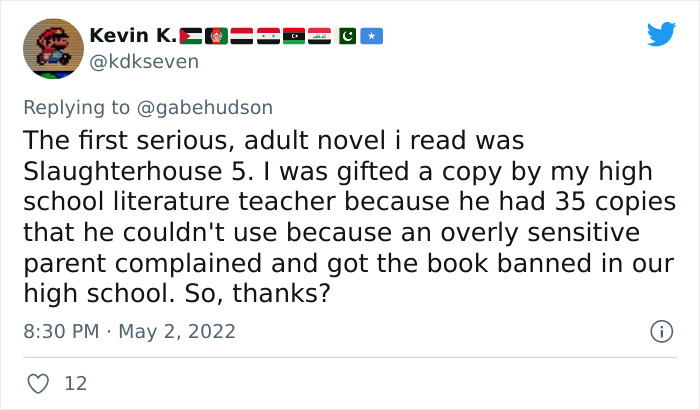
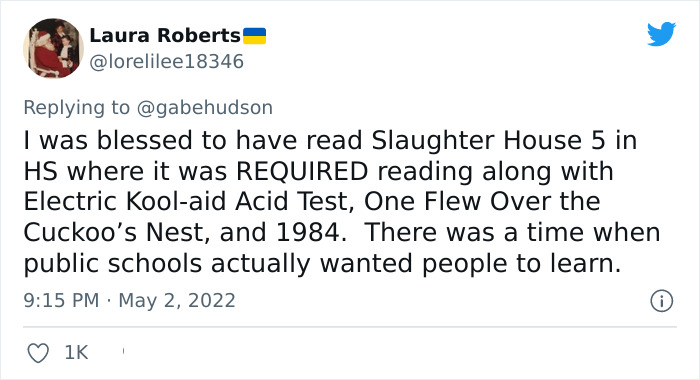
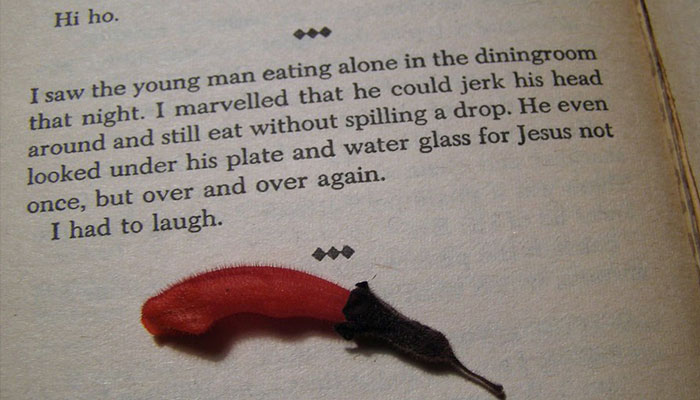
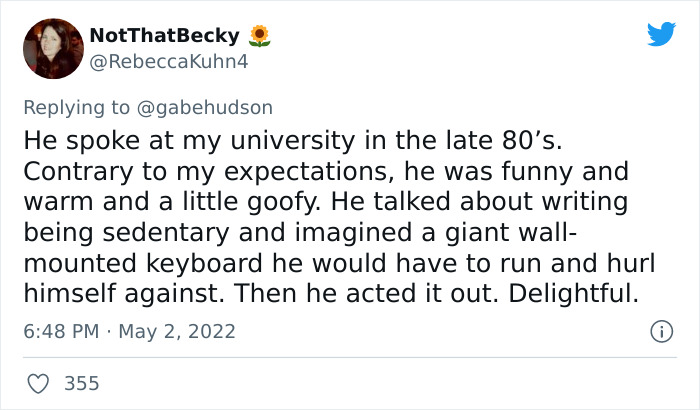
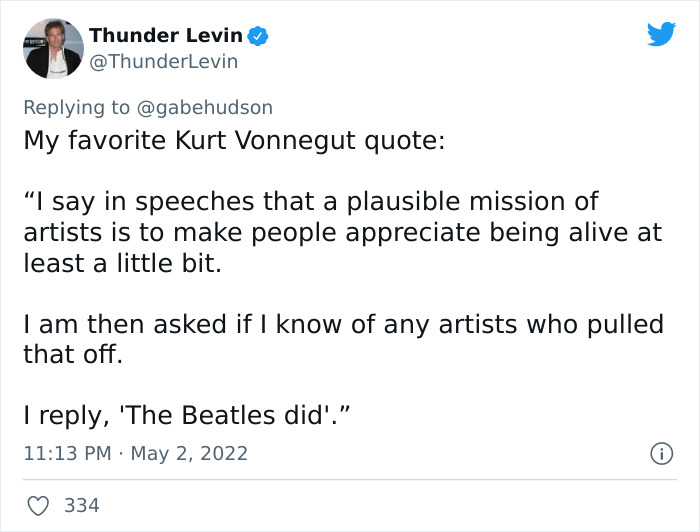
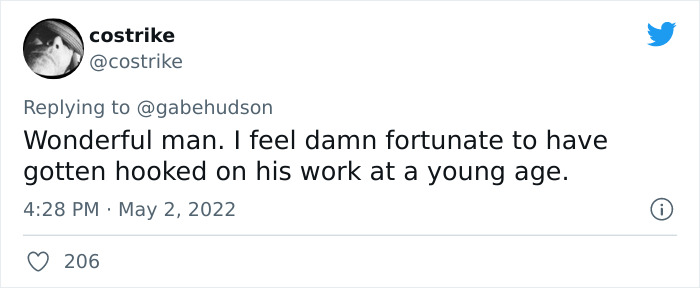
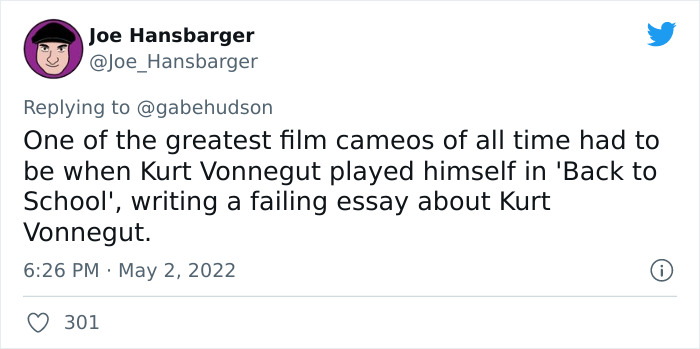
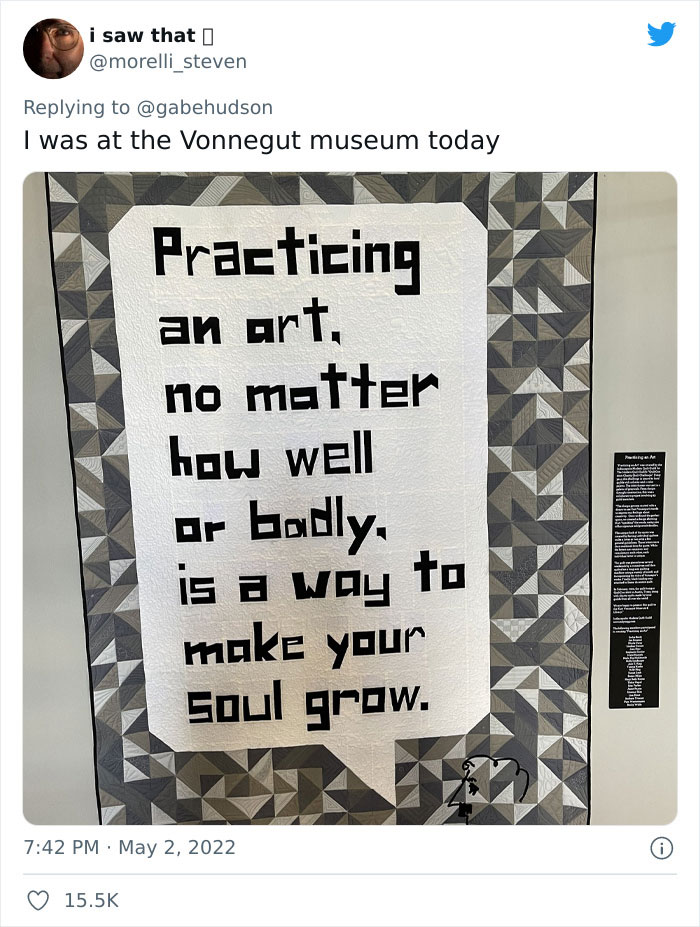
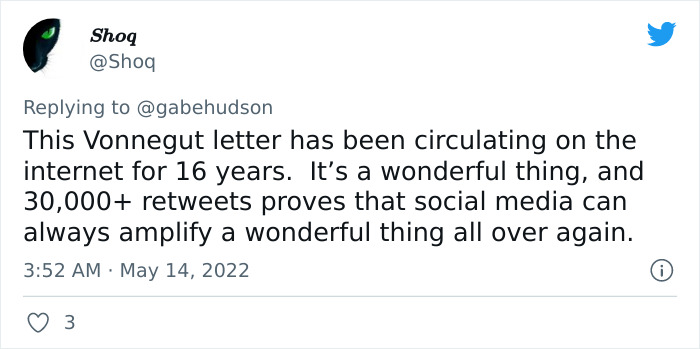
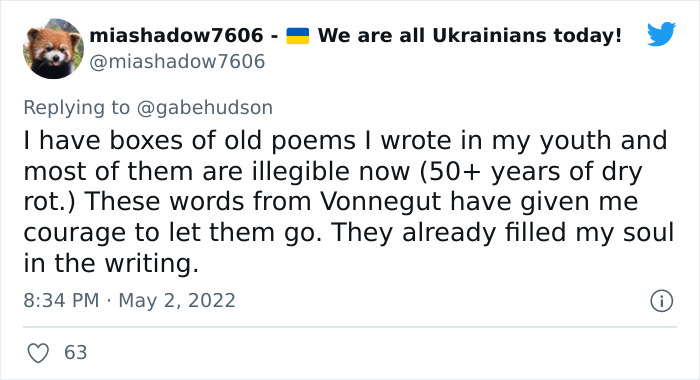
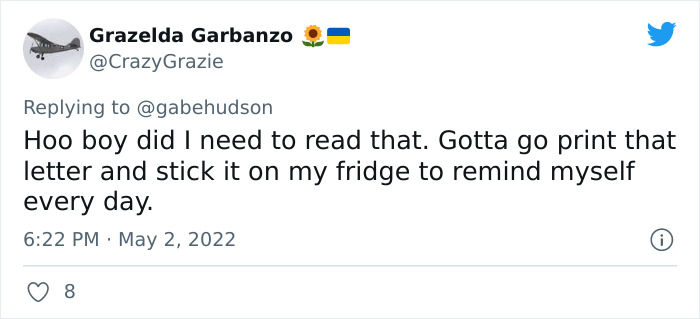
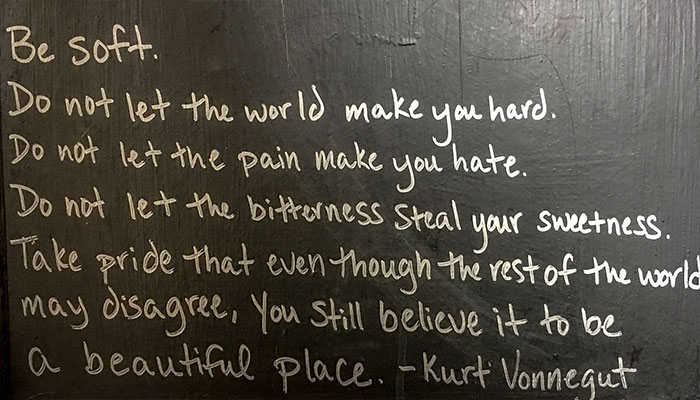











































87
8